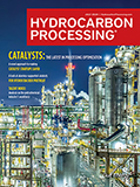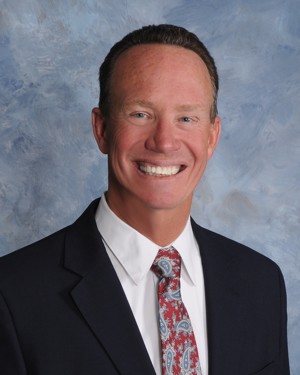HP Viewpoint: Advances in machine condition monitoring
Throughout the global downstream industry, companies are investing in new technologies. Whether it is in process optimization/engineering, reliability, equipment, etc., companies are always looking out for major trends to make the industry safer and more efficient. Hydrocarbon Processing caught up with Scott Breeding, president of Metrix, to get his views on machinery condition monitoring, what it means for the industry and what will be the latest in technology advancements within this field.
HP. What does Metrix do in the downstream oil and gas industry?
Breeding. Metrix is a 50-yr old company that supplies industrial vibration monitoring systems and services. We supply to many of the world’s leading manufacturers and users of gas turbines, generators, pumps, motors, fans, compressors, cooling towers and other users of rotating machinery. We are headquartered in Houston, Texas with a footprint in over 40 countries via factory-direct sales and service professionals, along with a strategic network of instrumentation partners.
HP. Why is machinery condition monitoring (MCM) important?
Breeding. A lot of it has to do with protection. Protection is preventing a catastrophic failure of the machine; it’s something that you have to have. For most systems, a low-cost benefit of putting on a monitoring protection system is you get the additional ability to diagnose machine faults. This allows you to have the ability to do real-time condition assessment. What that means is you can better plan maintenance. It sounds almost trite, but a correctly installed machinery protection system allows monitoring and diagnostic functions that saves the user time and money.
HP. How has MCM technology changed?
Breeding. One of the major changes is the argument on the way to properly instrument a given machine train is settled. For large, fluid film bearing supported machinery, condition monitoring has changed from the old shaft riders to non-contact eddy current proximity systems. Significant technology advances have been made in diagnostic systems for recording machine information and data analysis. The perceived need for this type of system on critical equipment is now nearly universal. With a properly deployed system, a remote user can now go out and grab it with a few clicks of a mouse. This type of dynamic data availability and analysis is now commonplace and provides a world of benefits.
HP. What are the major challenges you see in MCM industry today?
Breeding. A lot of companies have spent an enormous amount of money on systems that have not provided the promised value. It looked great on paper, but for one reason or another, they are not able to effectively utilize the systems. Maybe the system wasn’t networked correctly so they couldn’t get the data in front of the right user at the plant, or maybe they didn’t have the right remote user setup at their corporate or R&D center, or a whole host of other reasons. And when there is access, overly complex systems require expensive and ongoing training to be able to use the tools.
There is, and will be, a certain level of expertise required to utilize these systems correctly. As systems are deployed to remote, hard to reach locations, having that expertise physically there and available is another hurdle. Once a system is deployed and highly trained users can access the data, more problems can arise from lack of system optimization, software updates, hardware crashes, and poor documentation. These reasons all too frequently add up to the customer not reaping all the benefits and value possible from the system they just purchased, and consequently reluctance to make that investment on the next project.
At Metrix, we take a lot of pride in providing simple to use solutions that provide immediate and long lasting value. This includes providing exceptional customer-service in helping the client select the right equipment to protect their machinery. With all our equipment, customer-service doesn’t stop with installation. We work with our customers to make sure they understand the technology and are able to gain the most benefits out of their investment.
HP. Will there be new technologies to push this sector of the industry forward?
Breeding. Yes, I definitely think there is. For example, you now have the ability to walk up with your phone or tablet and have it communicate via Bluetooth to a transducer that is located on the machine. Because of GPS, the system knows where you’re at and which machine you are working on. Or your handheld device can display a picture with instructions on where to place the transducer, then it uploads the dynamic waveform data via a high speed wireless internet connection to the cloud, where the data is stored, and analytics are done. By the time you get back to your desk, your device has emailed you a PDF of the machinery condition report. So you’re not going to have to be out there with an expensive, portable walk-around box. Instead, just your phone and a simple Bluetooth-enabled accelerometer is needed.
We will see more and more solutions that were not possible five years ago, but five years from now will be commonplace. The ability to easily access a recording of the machine data via a locally stored and removable media, eliminating the need for a full-time network connection is another game changing technology advance. Frequently, the cost of installing the network exceeds the cost of the condition monitoring systems, but this connection may only be required when there is a machine fault requiring analysis. Being able to reliably capture that data and access when needed is going to dramatically reduce the cost of these systems.
I do think there are some fundamental shifts going on in the industry. For example, the total cost of the systems is going to keep coming down and the imbedded intelligence is going to keep going up. Having systems that self-optimize to set appropriate alarm and danger level is going to lower costs and improve machine reliability. Embedding micro-processor chips into transducers is going to allow more accurate system configurations and thus provide better data is coming soon. The current practice of deploying specialized computer systems that are essentially redundant to other installed systems will fade as more cost effective alternatives come to the market.
HP. What are you looking forward to most at the Turbomachinery & Pump Symposia?
Breeding. We have some exciting new technology we are introducing at the show and I always enjoy getting feedback from customers who stop by our booth. The world is changing fast and the show is a great way to showcase our latest technology.
Scott Breeding joined the Metrix management team in 2011 after a 12 year stint at General Electric. Prior to that, he was an officer in the US Navy for 20 years serving primarily as a Chief Engineer on a variety of ships. Scott is a graduate of Georgia Tech and a registered Professional Engineer.







Comments